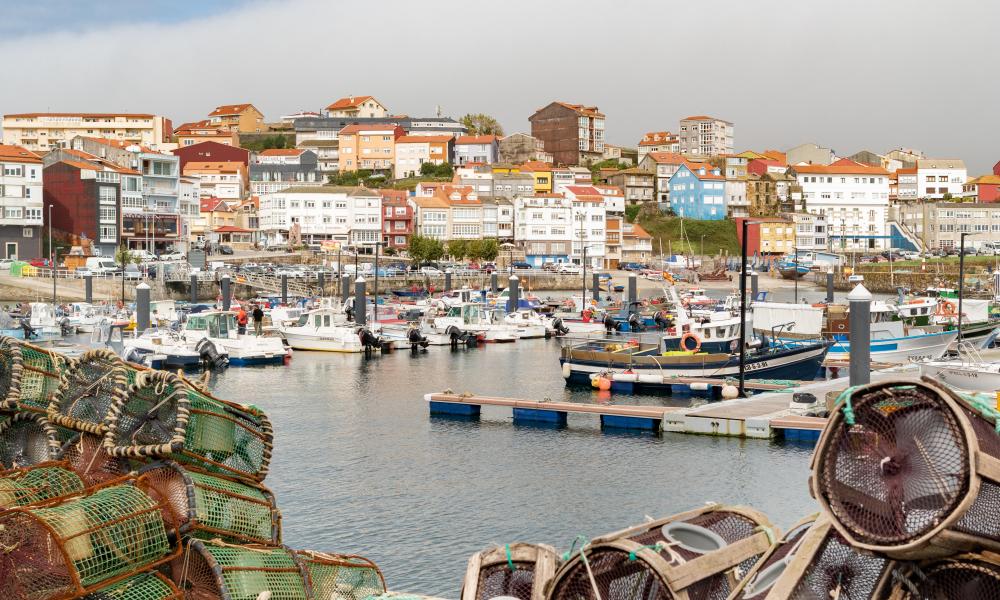
FISH THIEVES NOT WELCOME: GALICIANS TIRE OF ILL-MANNERED TOURISTS FROM MADRID
Galicia and Spain’s other Atlantic regions are becoming increasingly popular holiday destinations for Spaniards, and people from Madrid in particular, as they turn their backs on overcrowded and overheated Mediterranean resorts in favour of the more temperate north.
But while welcoming the income from tourism, Galicians have also given a nickname to their notoriously haughty visitors from the Spanish capital: fodechinchos, which translates literally as “fish thieves”.
“A fodechinchos is a visitor who’s a bit of an idiot, but basically a cocky tourist from Madrid who doesn’t respect local traditions,” said Miguel Vega, a Galician who teaches English at the University of Barcelona.
The Galician writer Ainhoa Rebolledo said a fodechinchos was typically someone from Madrid but that the term could refer to anyone from outside Galicia and generally denoted an ignorant or ill-mannered tourist.
“The typical fodechinchos doesn’t realise there are tides,” she said. “In the Mediterranean the tide is about 20 centimetres and here it’s a matter of metres. The classic fodechinchos gets their car stuck on the beach at high tide.”
Fodechinchos are also accused of insisting on a free tapa with their drink, a tradition in Andalucía but not in Galicia, nor in Madrid for that matter, and of complaining that the signage is in Galego, even though the Galician language is readily understandable to any Spanish speaker.
The bar O Kan de Mera near A Coruña has put up a sign that reads: “You are entering a sector free of fodechinchos. No ordering of two rum and cokes and four glasses and a plate of olives.”
An X user, @FodechinchosG, posted: “Beware, there’s a type at large who steals shellfish, shouts a lot, complains that everything’s in Galego, is usually a bumpkin wearing Spanish insignia and says Madrid is the best place in the world although they escape whenever they can.”
The word fodechinchos originates from the practice, since outlawed, of throwing a net close to the shore to catch small jackfish (chinchos). The net, teeming with fish, was then hauled on to the beach and the fishers would let tourists take a few home to cook.
However, people soon started to take advantage and arrived with buckets to help themselves to the catch, hence “fish thieves” and, by extension, people who abuse your hospitality.
Meanwhile, farther east along the north coast in Cantabria, a young woman found herself being quoted in the national press after she tweeted her disdain for visitors from other parts of Spain.
People from Mediterranean Spain “complain that the water’s too cold, that there’s algae, there are waves. They seem incapable of understanding that there are tides,” she posted on X.
Next in her sights are madrileños who park their cars by the sea, complain they have to scramble over rocks and are surprised that cattle aren’t the only thing in Cantabria.
Worst of all, the woman claims, are Cantabria’s neighbours the Basques, “who act like they’re rescuing us from poverty when they buy a sandwich and then are rude to the waiter”.
If one thing unites Spaniards it’s their dislike of madrileños, just as the rest of France scorns Parisians. But people from Madrid aren’t the only ones with derogatory nicknames.
In rural Catalonia, people from Barcelona are referred to as pixapins or “piss on pines”, from their alleged habit of pulling over to relieve themselves at the roadside.
Catalans are disparaged by some Spaniards as polacos (Poles) because they don’t understand them when they speak Catalan.
In Cantabria, the equivalent of fodechinchos is a papardo, named after a fish that devours everything then disappears, while in Navarra they call visitors from the Basque Country robasetas (mushroom thieves).
2024-08-19T12:04:55Z dg43tfdfdgfd